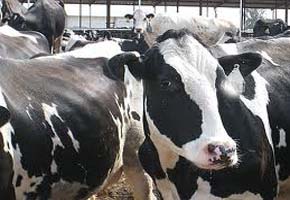Dairy industry seeks customs duty waiver


Business Reporter
PLAYERS in the dairy industry have approached the Competition and Tariff Commission (CTC) seeking a waiver of customs duty on imported dairy products’ packaging and raw materials. CTC said on Monday it was investigating the players’ concern and noted that duty on some dairy packaging and raw materials products ranged between five and 40 percent.
“The commission received a request for duty reduction to zero percent on dairy products packaging and raw materials. The commission is therefore undertaking tariff relief investigations into this request and is calling for views on the request from interested parties,” said the tariff watchdog in a statement.
CTC said imported antibiotic kit and mixtures of juices for instance were presently attracting a duty of five percent and 40 percent respectively.
However, following the request to waive the customs duty, CTC said it was calling for views from interested parties namely manufacturers of these or similar products, suppliers of inputs used to produce the products, consumers of the products and any other interested stakeholders.
“Views and information to be submitted should be for at least three years covering all or some of the following citeria, company background, annual quantity of domestic production, capacity utilisation levels,” read the statement.
Last month, CTC announced that it was also undertaking an investigation following a request by local companies involved in the production of foods items made from maize grit to increase customs duty as the local industry sought protection from imports.
Prepared foods obtained by swelling or roasting of cereal products from Sadc member states presently attract zero percent duty.
Economic analysts say it is imperative for government to increase duty on certain imported products where local companies have capacity to supply the market.
“If local companies prove to government that they have the capacity to supply the market at competitive prices, import duty needs to be increased on similar products to promote viability of domestic industries,” said Peter Mhaka, a Gweru-based economic commentator. Similarly where the local industry cannot competitively supply the market, it is imperative for government to waive duty until such a time when our industries have the capacity to supply the market.”
Since the liberalisation of the economy in February 2009, local industries have been struggling to increase capacity utilisation to competitive levels in light of a host of challenges including lack of working capital, antiquated machinery and competition.









Comments